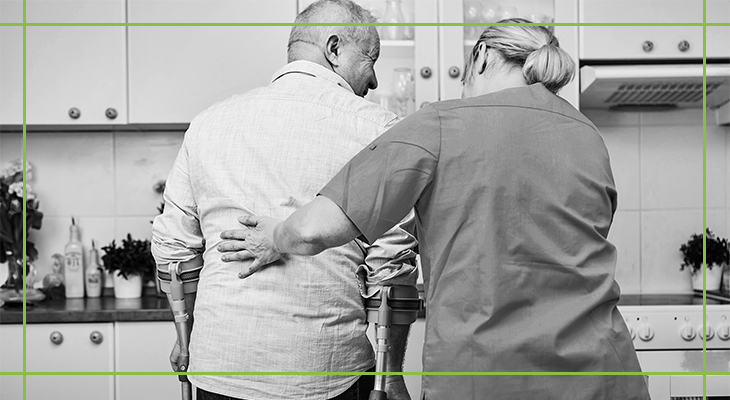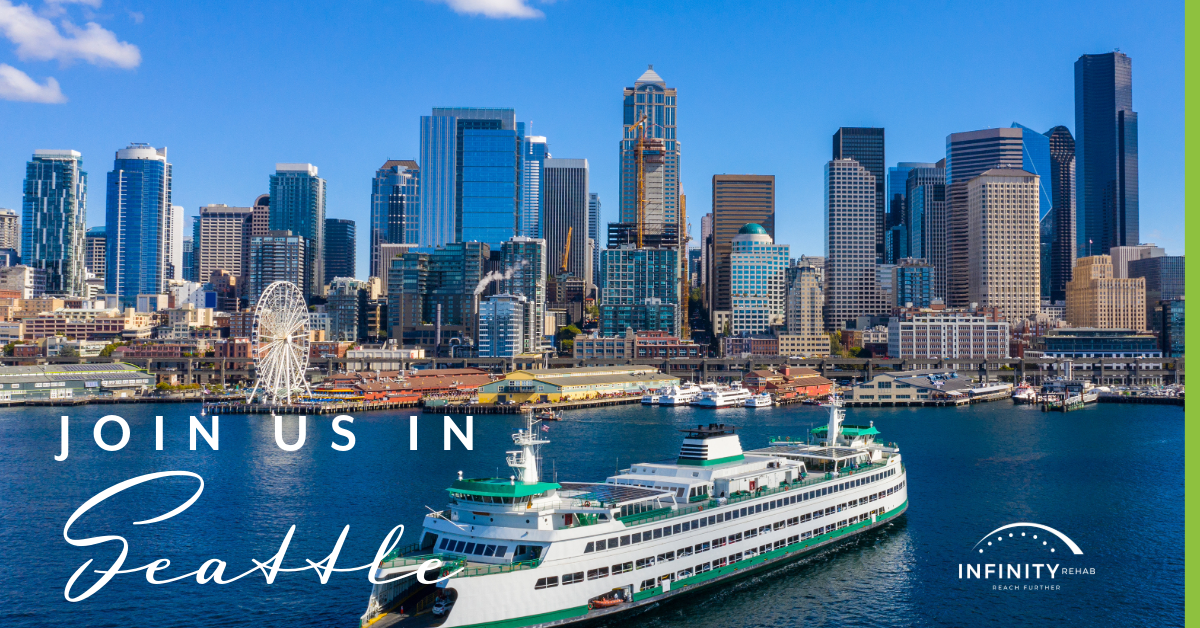This is the second part of Amy Uebelhoer’s remarkable story of overcoming significant odds. To read the first part, please click here. Born with a rare brain disorder that caused years of turmoil and pain, Amy underwent corrective surgery in 2008. This final installment follows Amy through another brain surgery, recovery and therapy.
I developed a rare surgical complication called pseudomeningocele after undergoing surgery to correct the Chiari Malformation (CM) at the base of my skull. A cavity formed in the soft tissue around my cerebellum and the top of my spinal cord, which allowed spinal fluid to build up and put excessive pressure on both my brain and spine. This occurs in less than 2% of patients who have neurosurgical repairs performed. On the first MRI scan the pocket of fluid measured 2.4 cm. My doctor said normally the body would reabsorb the fluid and not to worry. One month later the lump was much larger and began to bother me when I laid down. I again had an MRI that revealed the lump had doubled in size to almost 5cm. The doctor advised to keep a close watch on it and if it was still present in six months we would talk about draining it.
I didn’t have to wait six months. In October the pseudomeningiocele ruptured at the base of my skull and blew a hole out of the back of my head. That is not an exaggeration. When I got to the hospital, the doctor was able to easily swab the hole with cotton balls – to my extreme discomfort – where the incision from my first surgery used to be. This resulted in surgery to repair the hole and repair the damage done to my previous surgery. Additional neurosurgery would be needed to prevent future fluid build up, which was scheduled for November 18, 2009.
On top of all the trauma I had endured I was devastated to learn I had no other vacation/benefit time to use. But I was blessed to have such a dear co-worker, Karla Draves, COTA, who put out an email to all Infinity Rehab staff asking for people to donate PTO time so I could have this urgent surgery. I was overwhelmed at the response by my wonderful co-workers, giving away PTO, to me, someone they didn’t even know. I am still touched by this gesture, by Karla and by those who donated that I have never met or may never meet.
My second surgery was not as easy as the first. There was a lot of damage to repair. The doctors had a diversion shunt implanted to remove excess spinal fluid from my brain. A tube came out the lower part of my back into a catheter bag to drain. I had to lie motionless on my back in ICU for five days. The pain was even more intense than with the first surgery and the slightest movements made the pressure in my head unbearable. I was shocked one day when I woke up to realize I couldn’t hear anything. I was very dizzy and kept vomiting which was difficult considering I couldn’t move.
After five days the shunt was pulled and I was allowed to sit up. It was then I realized my recovery this time was going to be immensely more difficult than my previous surgery. My arms and legs were very weak and I could hardly hold up my head because my major neck muscles had been cut through two times. My hearing slowly returned but I noticed new, frightening deficits in my body, such as memory issues. I was given a phone to make and receive calls. I knew in my head what the device was but had absolutely no idea how to use it. Even the knowledge of how to use the TV remote escaped me. When I returned home it was even more frustrating. I was still unable to keep food down and I couldn’t hold my head up because of the dizziness and headaches.
As I got stronger some deficiencies improved and new ones developed. My balance was completely shot after the second surgery. It was difficult to walk, to say the least. My arms and legs were very weak. My memory was permanently impaired and word finding was still difficult. As a Speech-Language Pathologist I knew what to do for the memory and word finding but the balance and walking were scary. Some days my hearing would come and go, as would my vision. I was unable to sleep more than 2 to 3 hours per night, which remains a problem nearly a year and a half out from surgery. My neurosurgeon warned me this might be my new “normal” and this was the best I might get. But I had to remind myself to be thankful – I was still alive.
Just like the last surgery, after four weeks of rest I was back to work part-time with Infinity Rehab. I found myself carrying around a little notebook in my pocket so as not to forget important details. My co-workers also helped me when I couldn’t think of the names of things. Thank goodness I have such understanding coworkers! It would have been very difficult if it wasn’t for their understanding dedication and patience. I was sent to physical therapy to strengthen my neck muscles to hold my head up and decrease pain from my surgeries. It was very odd to be on the other side – being the patient – and not the therapist. It took a lot of patience and restraint to not jump in and offer my suggestions during consultation. As my recovery progressed I was eventually discharged from therapy and told to continue to stretch my muscles.
About a year after my second surgery I developed difficulty walking again. I noticed myself losing my balance and running into things. I would trip walking down the hall when there was nothing there but my own two feet. I was sent back to physical therapy to assess my balance/gait. I miserably failed my Neurocom testing – a set of internationally standardize balance and mobility tests.
Still, to this day I receive physical therapy to work on my balance and gait. I basically have coping skills when I lose my balance. If for some reason I lose my balance gravity takes over and sends me to the floor. I have had to learn new ways to walk or compensate for my deficits. It has been a sobering experience to not be able to do things that seem so easy for others to do. I have been very frustrated by this. There are times when the trained therapist in me wants take control of the therapy and tell the attending therapist what to do! But I remind myself that they are working very hard to help me recover.
My life has drastically changed after being diagnosed with CM and the subsequent surgeries. It is a chronic disorder that I will have to deal with the rest of my life. I may or may not develop more symptoms. I may or may not need another craniotomy. I am thankful for every day I am given. I have met others with CM through the Conquer Chiari organization. Not all of them have been as fortunate as me. One friend has undergone 23 craniotomies for his CM. Another is in a wheelchair. While another has not had a single surgery. We all have the same disorder but fight different battles in our day-to-day struggle with CM.
I was angry at first and wanted to know “why me?” Then I realized what a blessing my CM really is. I have reflected on what is really important to me in life and what isn’t. I have come to realize that life is precious and we need to be thankful for each and every day we are given. I am working on relationships that became damaged by the CM as I was not the most pleasant person to be around when I was scared, confused and in pain. I also realize how much of this experience I have kept bottled up inside of me. I have tried to remain strong and not let others know the difficulties I have gone through.
One of the most important lesson I have learned is a new respect for our therapy patients. Being a patient myself with a severe chronic disorder, I understand their frustrations and struggles on an entirely new and different level than before. I am happy to show them my scar or let them feel my head where there is no bone. Somehow it helps them when they know I really mean it when I say “I understand what you are going through”, because I do. And I know how hard it is.






